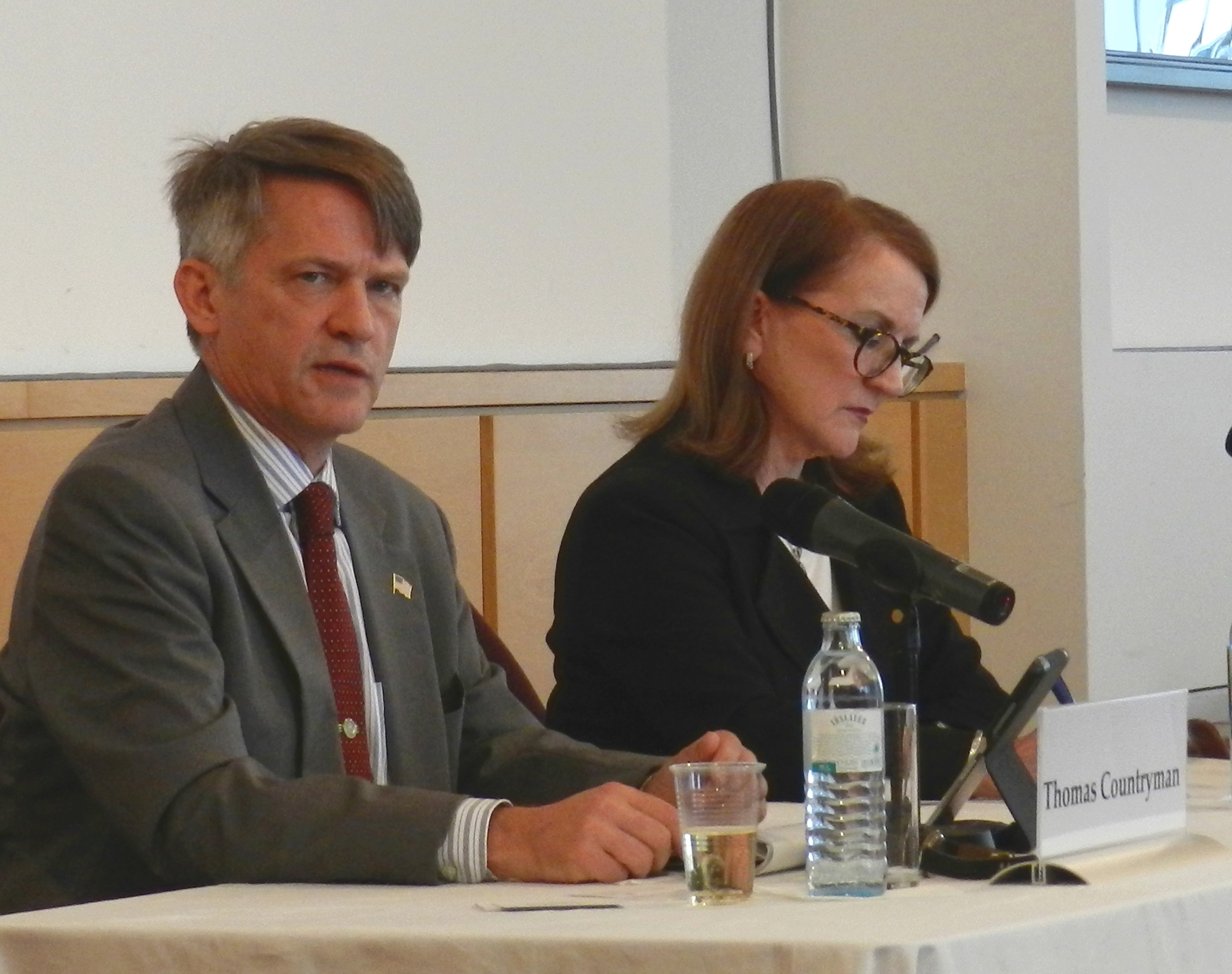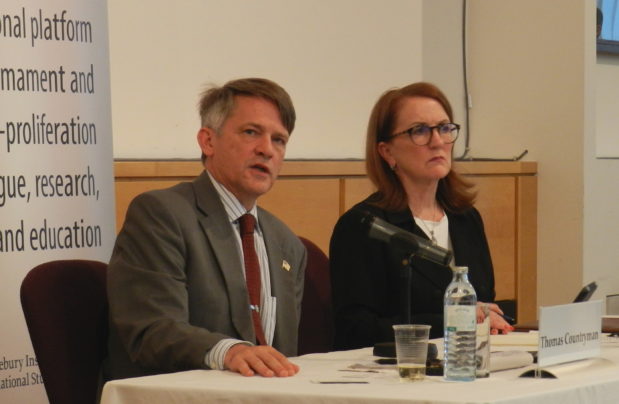
On Thursday evening, 24 May 2018, the VCDNP hosted a seminar by His Excellency Thomas Countryman, Chairman of the Board of Directors of the Arms Control Association. Mr. Countryman, left the US Department of State in January 2017, where he was serving as the Assistant Secretary of State for International Security and Nonproliferation and Under Secretary of State for International Security Affairs, after a career of over 35 years of experience in the US diplomatic corps. He discussed the domestic political roots of the Trump White House’s approach to nuclear negotiations with Iran and North Korea and the dangers each situation poses to regional security and the global non-proliferation regime. The seminar was moderated by VCDNP Executive Director Laura Rockwood, and attended by over 120 participants. To view the complete talk by Mr. Countryman, please see the video below.
In his presentation, Mr. Countryman began with an analysis of the US position with respect to Iran and the withdrawal by US President Donald Trump from the Joint Comprehensive Plan of Action (JCPOA). He described this action as having been motivated in part by the President’s desire to fulfil campaign promises as well as his desire to roll back the achievements of his predecessor President Barack Obama. As regards the Democratic People’s Republic of Korea (DPRK), as no US president had succeeded in securing a lasting solution, President Trump may see this issue as one he can “own”.

What lies ahead? In preparing his talking points, Mr. Countryman was of the view that “postponement of the 12 June summit between the U.S. and DPRK was unlikely”, given the interest of the leaders of both countries in media coverage. Mr. Countryman was also optimistic that the summit would go ahead due to the skilled diplomacy of President Moon of South Korea, the long-standing wish of Kim Jong-Un to meet with the US President and to turn his attention to improving North Korea’s economy, and President Trump’s desire for a win. Although Mr. Countryman’s optimism seemed to be misplaced, in light of the announcement by President Trump that had just been made that afternoon that the summit would not take place, it seemed to be justified the following day, when the President announced that the summit was back on.
As regards the outcome, Mr. Countryman was of the view that while a comprehensive agreement was not likely, there might be at least a short statement on agreed goals, such as denuclearization and long-term peaceful relations, based on action for action. The most difficult aspect of any agreement might well be what would trigger sanctions relief and when that would start. On the other hand, he noted that there was much that could go wrong: unrestrained rhetoric, a lack of preparation on the US side, and a lack of understanding on what denuclearization means.
Turning to Iran, Mr. Countryman referred to the US withdrawal from the JCPOA as a violation of the agreement and a binding United Nations Security Council resolution, based on a number of incorrect statements about the content of the JCPOA. He referred to Secretary of State Pompeo’s recently issued list of 12 demands on Iran, noting that some of them had been based on basic norms but others went far beyond that, and questioned why the same demands had not been made of North Korea. He described the demands as “all-out economic warfare”. In that regard, he expressed his support for the efficacy of sanctions, as a non-military tool, but that they had to be universally applied, with clear goals and clear indications of how they would be suspended. His personal view was that re-building consensus around Iran sanctions was no longer likely. He was also of the opinion that the US actions would not likely be viewed by Iranians citizens as in their interest. His long-term worry was of an increasing possibility of military conflict in the Middle East.